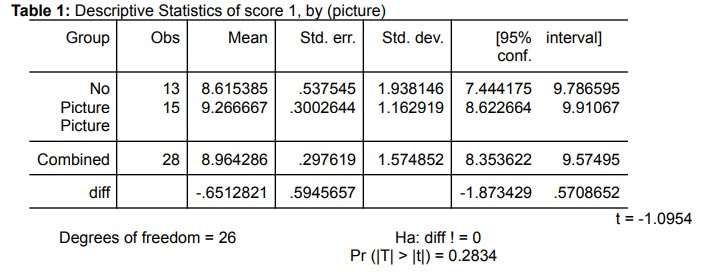A Comparative Study of Teaching L2 Vocabulary with and without Illustrations to Virtual EFL Learners
DOI:
https://doi.org/10.58445/rars.94Keywords:
Audio-aided flashcards, Flashcards, L2 vocabulary learning, Pandemic, Proficiency, Retainment, Virtual learning conditions, Visual aidAbstract
Second language learning research suggests that visual aids and illustrations have the potential to enhance proficiency and retention of vocabulary terms in a foreign language. This study builds off of this literature by studying Native English speakers learning of Polish words using images versus no images. This quantitative study compares the effectiveness of 2 learning methods within groups that studied 10 vocabulary terms in Polish: (1) participants studying with virtual flashcards with illustrations, and (2) participants studying with virtual flashcards without illustrations. After a 10-minute virtual tutorial, participants were asked to fill out a Google form that measured their vocabulary retention. They were then asked to fill out the same Google form after 5 days.
References
Alghamdi, Asma A., and Tariq Elyas. "The Effect of Electronic Flashcards on EFL Students' Vocabulary Learning: The Case of Saudi Arabia." Randwick International of Education and Linguistics Science Journal 1.2 (2020): 114-125.
Andarab, Mehdi Solhi. "The Effect of Humor-Integrated Pictures Using Quizlet on Vocabulary Learning of EFL Learners." Journal of Curriculum and Teaching 8.2 (2019): 24-31.
Andrä, Christian, et al. "Learning foreign language vocabulary with gestures and pictures enhances vocabulary memory for several months post-learning in eight-year-old school children." Educational Psychology Review 32.3 (2020): 815-850.
Ashcroft, Robert John, Robert Cvitkovic, and Max Praver. "Digital Flashcard L2 Vocabulary Learning Out-Performs Traditional Flashcards at Lower Proficiency Levels: A Mixed-Methods Study of 139 Japanese University Students." The EuroCALL Review 26.1 (2016): 14-28.
Basoglu, Emrah Baki, and Omur Akdemir. "A comparison of undergraduate students' English vocabulary learning: Using mobile phones and flash cards." Turkish Online Journal of Educational Technology-TOJET 9.3 (2010): 1-7.
Dizon, Gilbert, and Daniel Tang. "Comparing the Efficacy of Digital Flashcards versus Paper Flashcards to Improve Receptive and Productive L2 Vocabulary." The EuroCALL Review 25.1 (2017): 3-15.
Dodigovic, Marina. “Vocabulary learning with electronic flashcards: Teacher design vs. student design.” Voices in Asia Journal 1 1 (2013): 15-33.
Ghaedi, Reza, and Mohsen Shahrokhi. "The impact of visualization and verbalization techniques on vocabulary learning of Iranian high school EFL learners: A gender perspective." Ampersand 3 (2016): 32-42.
Gration, Article by: Elizabeth. “Bilingualism Statistics in 2021: US, UK & Global.” Language Learning with Preply Blog, 12 July 2022, https://preply.com/en/blog/bilingualism-statistics/.
Jaiswal, Priya. “How Covid-19 Pandemic Has Changed the Education System, Forever.” English, 21 Feb. 2022,
www.indiatvnews.com/education/news/how-covid19-pandemic-has-changed-the-educatio n-system-forever-global-edtech-investments-2022-02-21-760716.
Komachali, Maryam Eslahcar, and Mohammadreza Khodareza. "The Effect of Using Vocabulary Flash Card on Iranian Pre-University Students' Vocabulary Knowledge." International Education Studies 5.3 (2012): 134-147.
Li, Mingye, et al. "Applying L1 Translation in L2 Vocabulary Building: Efficacy of Immersion Learning Method in the Online Environment." International Journal of New Developments in Engineering and Society 5.1 (2021).
Mansourzadeh, Nurullah. "A comparative study of teaching vocabulary through pictures and audio-visual aids to young Iranian EFL learners." Journal of Elementary Education 24.1 (2014): 47-59.
Saeidi, Mahnaz, and Mohammad Amin Mozaheb. "Comparing vocabulary learning of EFL learners by using two different strategies (mobile learning vs. flashcards)." International Journal of Mobile Learning and Organisation 6.3-4 (2012): 303-315.
Sienkiewicz, Taylor. “Why Flashcards Work.” Peterson's, Peterson's, 9 Dec. 2019, www.petersons.com/blog/why-flashcards-work/.
Tahir, Mohd Haniff Mohd, et al. "The Application of Visual Vocabulary for ESL Students' Vocabulary Learning." Arab World English Journal 11.2 (2020): 323-338.
Wu, Xiaoli. “Vocabulary Learning in a Second Language.” SpringerLink, Springer US, 1 Jan. 1970, link.springer.com/referenceworkentry/10.1007%2F978-1-4419-1428-6_943.
“Using Translation as a Method of Language Learning.” BeTranslated, 23 Sept. 2021, www.betranslated.com/blog/translation-language-learning-method/.

Downloads
Posted
Versions
- 2022-12-24 (3)
- 2022-12-24 (2)
- 2022-12-13 (1)
Categories
License
Copyright (c) 2022 Natalie Piskadlo

This work is licensed under a Creative Commons Attribution-NonCommercial-NoDerivatives 4.0 International License.

